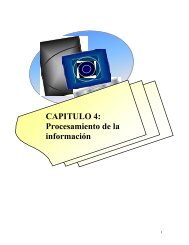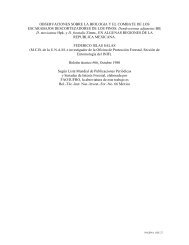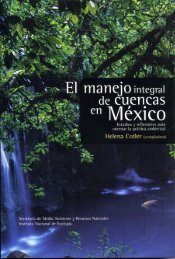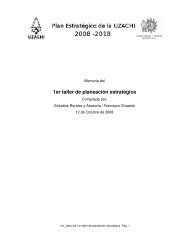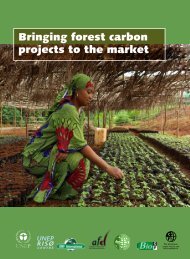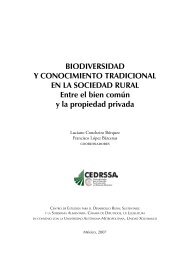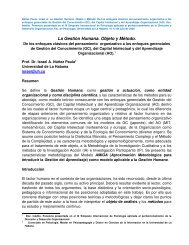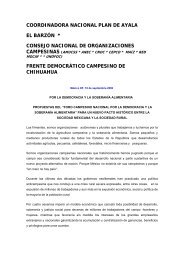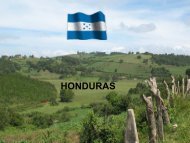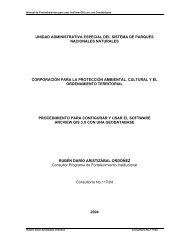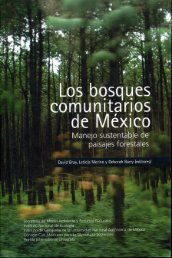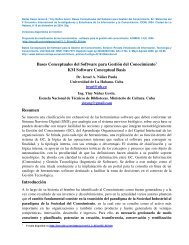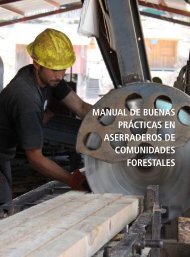STATE OF THE WORLD's INDIGENOUs PEOpLEs - CINU
STATE OF THE WORLD's INDIGENOUs PEOpLEs - CINU
STATE OF THE WORLD's INDIGENOUs PEOpLEs - CINU
- No tags were found...
Create successful ePaper yourself
Turn your PDF publications into a flip-book with our unique Google optimized e-Paper software.
EMBARGOED UNTIL 14 January 2010<strong>STATE</strong> <strong>OF</strong> <strong>THE</strong> WORLD’S INDIGENOUS PEOPLESNot for distributionThe inter-related, inter-dependent and universal aspects of human rights arecrucial indicators of the exercise of the right of self-determination. The right ofself-determination is recognized as a pre-requisite to the exercise and enjoymentof all human rights. Hence the language of Article 3 of the UN Declaration on theRights of Indigenous Peoples:Indigenous peoples have the right of self-determination. Byvirtue of that right they freely determine their political status andfreely pursue their economic, social and cultural development.In this regard, do indigenous peoples exercise their human right to development,including social development, economic development, cultural development andspiritual development? Do indigenous peoples control all forms of developmentin their communities? In terms of universality, do some indigenous peoples’communities enjoy greater exercise of self-determination than others?do indigenous peoplesexercise their humanright to development,including socialdevelopment, economicdevelopment, culturaldevelopment andspiritual development?There is also an inter-relationship (meaning you cannot attain one without theother) between development, security and human rights. And, in this context,“security” is not confined solely to military security. Rather, in an indigenouscontext; do indigenous peoples enjoy environmental security? Do indigenouspeoples enjoy security in relation to their hunting, fishing and other gatheringrights? If self-determination had been effectively attained, it would embracesuch indigenous priorities and such questions would not have to be asked.The right to free, prior and informed consent is another crucial element of selfdetermination.Is it recognized and respected in relations, agreements, etc., withstates? Or is it diminished through mere “consultations” or denied and violatedthrough unilateral state actions?There is a strong correlation between the health of individuals and communitiesand the exercise or denial of the right of self-determination, with a growing bodyof evidence to support this thesis. Self-determination is intended to strengthencommunities, not weaken or devastate them. What are the health conditionsof indigenous communities, psychological, physical, etc.? Are the members ofindigenous communities healthy?Similar to health, is there equity of options and opportunity for indigenouspeoples and indigenous peoples’ communities? Poverty or the overall healthand viability of a community are other relevant indicators of the exercise ordenial of self-determination.Democracy, the rule of law and human rights are inter-related and importantdimensions of self-determination. Democracy in this context does not mean majorityrule. Rather, it suggests a review of democratic principles and whether they are inoperation within indigenous communities and in their relations with others.These are only preliminary suggestions for possible indicators with which toanalyse the extent to which indigenous human rights are respected, recognized,210 | CHAPTER VI



